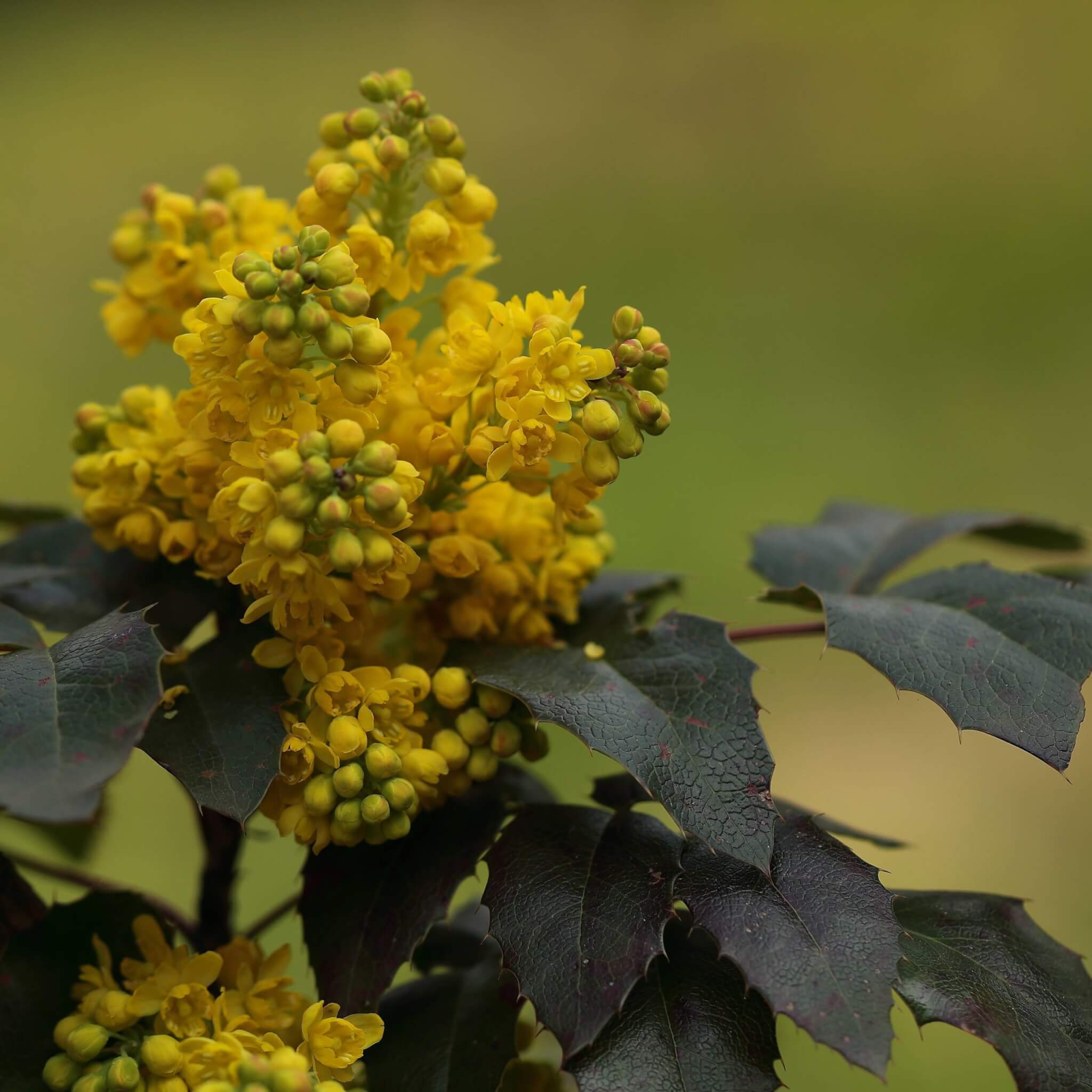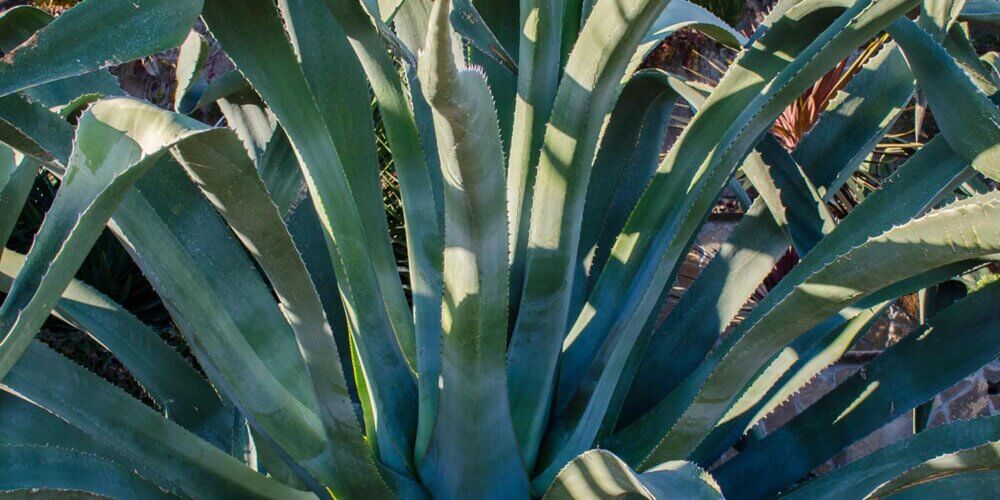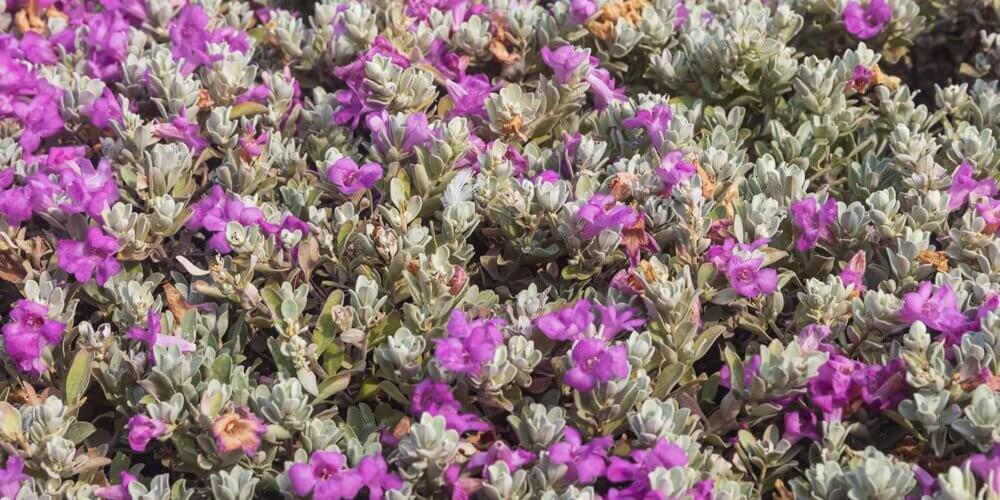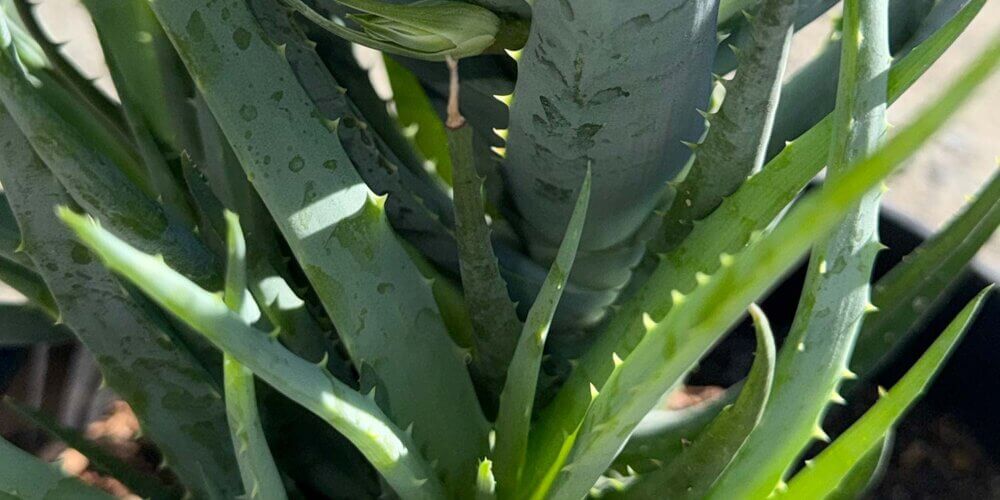
About Mahonia repens (Creeping Mahonia)
This low-growing evergreen shrub is called Mahonia repens. More commonly known as Creeping Mahonia, this specimen grows 1′ in height with a 3-4′ spread that can be grown as an interesting groundcover. It has leathery obovate-shaped leaves with toothed edges that are accompanied by clusters of tiny yellow flowers in the spring. By the end of summer, its flowers are replaced by clusters of blue fruit that while seeming enticing, have a very sharp and sour taste. During the winter its leaves which are typically a deep green, turn almost purple-black in color.
Considered to be a low-maintenance shrub, this specimen is also considered to be drought-tolerant and can withstand temperatures as low as 0 degrees Fahrenheit.
Planting and care instruction
Plant Mahonia repens in an area that receives filtered or partial sun using well-draining acidic soil. This plant does particularly well when topped with humus soil and can be expected to grow at a moderate rate. If using as a groundcover, place each plant 3-4 feet apart to avoid crowding. Water regularly after planting to establish a healthy root system then reduce the frequency to once weekly, except during periods of extreme heat. A general fertilizer can be used in the spring and pruning isn’t necessary unless desired for a different size or shape.
Landscape design ideas
Use Creeping Mahonia as a groundcover for bare spaces between planting beds or in areas that receive filtered throughout the day. This plant fits well in woodland-type gardens and planted in multiples.


